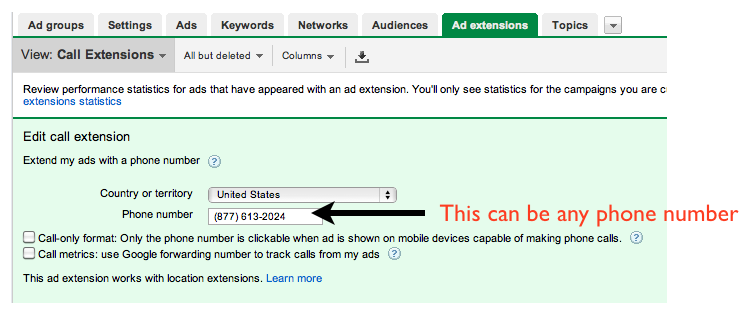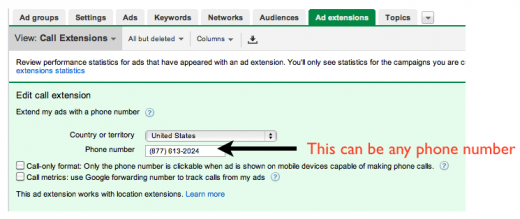Google To Unify Web Data Through Google My Business, Call Extension Numbers
by Laurie Sullivan, Staff Writer @lauriesullivan, January 9, 2017

Google’s decision to organize data being used for online search advertisements, especially location and call extensions in AdWords, could have long-term benefits for people using search data in their daily lives. The latest example draws a line between Google My Business and Call Extension numbers.
The greatest benefit involves the unification of organic search results in the search engine results pages with paid-search advertisers, but this will also tie into location and automation in Google Assistant.
While there are pros and cons to the shift, here’s the basics. When search advertisements serve up a business location on google.com, the call extension could direct the consumer through a phone number associated with that location even if it’s different from the number used in the call extension.
It’s really about correcting and unifying the data on the Web, making it more accessible to a variety of technology that will pull from this information.
Ads that feature specific business locations may drive calls to phone numbers associated with the locations, according to a letter from Google sent to AdWords advertisers.
Beginning January 19, if the ad features an individual business location, the example text ad format will show with the location extension and the location-specific phone number may be used.
Advertisers that use location extensions more frequently may notice more calls going to their Google My Business number rather than their Call Extension number, Mark Irvine, senior data scientist at WordStream, wrote in a blog.
Irvine listed some pros and cons for Google’s latest decision to unify data across the Web.
Google often serves up different numbers for the same business address in the paid ad and the organic listing, but it’s at no fault of the search engine, but rather the person imputing the information into different databases and advertising platforms from which the results pulls.
It will likely make AdWords account management easier for a lot of local businesses, Irvine writes, because marketers won’t need to create several different call extensions and different campaigns just to make sure they are directing calls to the correct location. And, “since location extensions are created at the account level, rather than the campaign level like call extensions, advertisers won’t need to worry about forgetting to apply a call extension to an individual campaign,” he writes.
The major drawback to this change, per Irvine, is that local advertisers will lose the ability to track and report these calls from ads as conversions, which he explains is the whole point of call tracking. There’s also a change to opt-out of showing location-specific phone numbers in your ads by filling out this form before January 19, 2017.
Irvine lists steps that marketers can take to prepare for the change.
MediaPost.com: Search Marketing Daily
(24)


